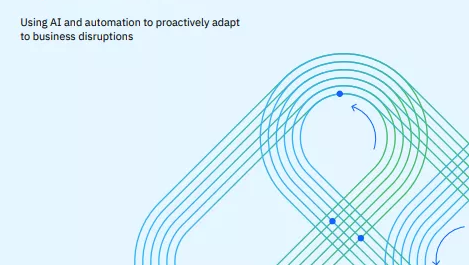Facebook claims AI managed to reduce hate speech by 50%
The social media platform has hit back at claims the tech it uses to fight hate speech is inadequate


Facebook has hit back at reports which claim its artificial intelligence (AI) fails to detect hate speech by claiming that the technology managed to reduce its prevalence by 50%.
On Sunday, the Wall Street Journal (WSJ) published a report based on internal documents and employee testimonials which show that the social media platform manages to remove only “a low-single-digit percentage” of posts that violate its rules of conduct.
The AI used to identify harmful content has problems detecting first-person shooting videos and racist rants, according to the report, as well as telling the difference between cockfighting and car crashes. However, it is more affordable to use than human reviewers, which in 2019 were costing the company “$2 million a week, or $104 million a year”, according to the WSJ.
Facebook’s VP of Integrity, Guy Rosen, issued a response to the article hours after it was published, stating that the hate speech has been reduced by almost 50% during the last three quarters.
According to the company, “prevalence is the most important metric to use because it shows how much hate speech is actually seen on Facebook”.
RELATED RESOURCE

“Recent reporting suggests that our approach to addressing hate speech is much narrower than it actually is, ignoring the fact that hate speech prevalence has dropped to 0.05%, or 5 views per every 10,000 on Facebook,” said Rosen.
When it’s uncertain whether a post violates Facebook’s terms, its visibility is reduced by limiting its distribution and not being recommended to users. This is done in order to protect those who post “content that looks like hate speech but isn’t”, such as “describing experiences with hate speech or condemning it”. The company also stated that 97% of removed content is identified by its algorithm, up from 23.6% in 2016.
Get the ITPro daily newsletter
Sign up today and you will receive a free copy of our Future Focus 2025 report - the leading guidance on AI, cybersecurity and other IT challenges as per 700+ senior executives
Facebook didn’t address the WSJ’s claims that the decision to use AI to monitor hate speech was motivated by costs.
These latest allegations come amid a difficult month for the social media platform, which was recently accused by former product manager turned whistleblower Frances Haugen of repeatedly prioritising profits over user safety. On 4 October, Facebook, as well as its subsidiaries WhatsApp and Instagram, also suffered a six-hour outage.
Having only graduated from City University in 2019, Sabina has already demonstrated her abilities as a keen writer and effective journalist. Currently a content writer for Drapers, Sabina spent a number of years writing for ITPro, specialising in networking and telecommunications, as well as charting the efforts of technology companies to improve their inclusion and diversity strategies, a topic close to her heart.
Sabina has also held a number of editorial roles at Harper's Bazaar, Cube Collective, and HighClouds.
-
 Bigger salaries, more burnout: Is the CISO role in crisis?
Bigger salaries, more burnout: Is the CISO role in crisis?In-depth CISOs are more stressed than ever before – but why is this and what can be done?
By Kate O'Flaherty Published
-
 Cheap cyber crime kits can be bought on the dark web for less than $25
Cheap cyber crime kits can be bought on the dark web for less than $25News Research from NordVPN shows phishing kits are now widely available on the dark web and via messaging apps like Telegram, and are often selling for less than $25.
By Emma Woollacott Published
-
 Achieving business outcomes with generative AI
Achieving business outcomes with generative AIWebinar Take your hybrid cloud journey to the next level with generative AI
By ITPro Published
-
 The three keys to successful AI and ML outcomes
The three keys to successful AI and ML outcomesWhitepaper Unlocking the potential of machine learning in the generative AI era
By ITPro Published
-
 Clarity of AI implementation is a primary concern for UK employees
Clarity of AI implementation is a primary concern for UK employeesNew research finds workers are enthusiastic about implementing AI but are in the dark over how it will happen
By Solomon Klappholz Published
-
 Operational efficiency and customer experience: Insights and intelligence for your IT strategy
Operational efficiency and customer experience: Insights and intelligence for your IT strategyWhitepaper Insights from IT leaders on processes and technology, with a focus on customer experience, operational efficiency, and digital transformation
By ITPro Published
-
 The four pillars of excellence for technology leaders
The four pillars of excellence for technology leaderswhitepaper Download this CIOs business case for integration and automation
By ITPro Published
-
 Sustainability at scale, accelerated by data
Sustainability at scale, accelerated by dataWhitepaper A methodical approach to ESG data management and reporting helps GPT blaze a trail in sustainability
By ITPro Published
-
 Bing and Edge AI hits open preview, with chat history and multimodal promise
Bing and Edge AI hits open preview, with chat history and multimodal promiseNews Bing and Edge have been given a visual boost, and will now support third-party integration
By Rory Bathgate Published
-
 How to help IT manage itself with autonomous operations
How to help IT manage itself with autonomous operationsWhitepaper Using AI and automation to proactively adapt to business disruptions
By ITPro Published